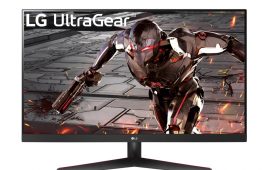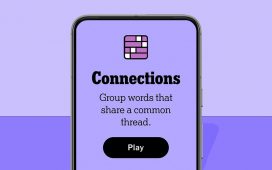The second day of the FTC v. Microsoft hearing was really all about one man: Phil Spencer. The Xbox chief took the stand to discuss Microsoft losing the console wars, Sony’s aggressive and hostile competition, and to paint Xbox in a distant third place where it’s struggling to compete.
Spencer also revealed Microsoft looked at buying Zynga to improve its mobile gaming prospects and acquired Bethesda after learning that Starfield might become a PlayStation exclusive. He also, importantly, swore under oath that Microsoft won’t pull Call of Duty from PlayStation. That promise turned into some frustrations with the FTC’s line of questioning from Judge Jacqueline Scott Corley and some testy exchanges between the FTC’s lawyer, James Weingarten, and Spencer.
Oh, and Google turned up at the end to talk about Stadia in a rushed last-minute testimony.
Yeah, it was a lot. Let’s dig in to day two.
Can we please stop talking about the Nintendo Switch?
We kicked off the day with a sealed courtroom so that Jamie Lawver, senior finance director at Xbox, could deliver witness testimony about highly confidential Xbox financials. We don’t know what Lawver revealed to Judge Corley, but it set the stage for Spencer to appear and talk about the Xbox platform and the Nintendo Switch.
The FTC and Microsoft have been arguing about whether the Switch should be included in its definition of the console market for two days now and in multiple filings with the court. Microsoft wants the Switch included because then Xbox is in third place. The FTC argues that inside Microsoft it’s always competing and comparing Xbox to PlayStation, not Switch. It provided market analysis and metrics that Microsoft uses internally to back up its “high performance” console market of just the PS5 and Xbox Series S / X consoles. The reality is, as always, somewhere in the middle.
The FTC had consoles inside the courtroom on day two to show how visually different the Switch is from the PS5 and Xbox Series X consoles. “The PS5 and Xbox Series X shipped at the same time… from a form factor these two functionally look more equivalent,” said Spencer, commenting on the visual appearance of the consoles the FTC had hauled into the courtroom.
“It’s incorrect to say Nintendo isn’t a competitor,” argued Spencer, but earlier on, he admitted there were some clear hardware differences. “The Switch was designed for people to take on the go,” said Spencer. “Whereas the gen 8 [Xbox One] consoles require that they’re plugged into the wall and don’t have a screen. Nintendo built a different platform.”
To further drive home the FTC’s point, Spencer was questioned about how many frames per second (fps) the Xbox Series S / X consoles can support, how many fps the Switch supports, and even the differences in GPU teraflops. At times it felt like the FTC was minutes away from calling a PC gamer to the stand to testify about memory speeds, CPU cores, and thermal paste.
The reality is that the Nintendo Switch is still a game console. It can play some of the games that the Xbox Series S / X and PS5 also play, albeit rarely as well or at the same visual fidelity. Its catalog includes extraordinarily popular games like Fortnite that don’t fit the conventional triple-A model. And it’s already successful without Call of Duty and the types of triple-A games that people typically buy a PS5 or Xbox Series X for, thanks to Nintendo’s decades of investment in its strong lineup of exclusive titles.
If you’re a gamer that Microsoft and Sony both care about, you’re probably also a potential Switch customer. At the end of the day Sony, Microsoft, and Nintendo are all competing for your gaming time and attention.
In the Epic v. Apple verdict it was decided that the Switch was potentially a future competitor to Apple and Google phones but not one yet. Nearly two years later, we’re in another antitrust case where the definition of the Switch is being debated. It’s a game console, folks. Move on.
The console wars and Xbox struggles
Ahead of the FTC v. Microsoft hearing, we saw Microsoft argue that “Xbox has lost the console wars, and its rivals are positioned to continue to dominate, including by leveraging exclusive content.” In a court filing, Microsoft said it had a 16 percent share of console sales in 2021 (when you count the Switch) and 21 percent of the console install base.
So, “has Microsoft lost the console wars?” asked the FTC’s lawyer in court on Friday. Spencer paused for 10 seconds here to gather his thoughts, as he clearly knows this is a hot topic among Xbox and PlayStation fans.
“As the console wars is a social construct with the community, I would never want to count our community out, they’re big fans,” Spencer answered carefully. “If you look at our market share in the console space over the last 20 plus years, we’re in third place. We are behind Sony and Nintendo in console share globally.”
Spencer was then questioned about an email exchange with Xbox CFO Tim Stuart where the Xbox chief described Sony’s PlayStation platform as “hostile to Xbox’s survival.” Spencer then admitted Xbox hasn’t “effectively” competed with PlayStation:
Every time we ship a game on PlayStation… Sony captures 30 percent of the revenue that we do on their platform and then they use that money among other revenue that they have to do things to try to reduce Xbox’s survival on the market. We try to compete, but as I said, over the last 20 years we’ve failed to do that effectively.
Later in the day Spencer was then asked about Xbox targets. “So your business is not necessarily meeting its internal targets today, right?” asked the FTC’s lawyer. “It is not right now, no,” admitted Spencer. “Today, with the majority of our business residing as the third-place console business, we are not a robust business.”
But just two weeks ago, Spencer revealed gaming revenue at Microsoft is double what it was in the Xbox 360 era in a behind-closed-doors presentation after its Xbox Games Showcase. Spencer also said at that presentation that Xbox has more players than ever, and Microsoft is expecting $1 billion in PC gaming revenue this year. So the Xbox business is in pretty good shape, but Microsoft clearly has some even bigger targets.
If the Xbox business isn’t meeting targets and struggles to compete, why is Microsoft spending nearly $70 billion on Activision? Spencer explained it’s apparently all about the mobile opportunity:
The deal, as we’ve talked about, expands our business to the mobile platform… the existing business that we run today as the third-place console business is a very difficult business to drive profit and margin. So the opportunity for us to expand in a meaningful way onto mobile, the world’s largest gaming platform, was really both a strategic and business opportunity behind this deal.
And to back that up, Spencer was asked about how the Activision deal could help Xbox consoles:
FTC: If Microsoft is going to grow, particularly in a business like console, it can grow by taking share from its competitors
Spencer: There’s no console growth in our [Activision] deal model.
FTC: Do you have any intention of this deal helping you climb out of the number three spot?
Spencer: In console, we do not.
FTC: So that’s just a write off?
Spencer: I don’t understand how that’s a write off?
The FTC then immediately moved on to a new question.
It sure sounds like Microsoft has realized console gaming is stagnant and there’s a mobile opportunity ahead, but we’ve heard some of this before. Spencer said in October that Xbox Game Pass subscriber growth had slowed down and we’ve seen Microsoft focus on PC Game Pass growth in recent months instead. Microsoft recently increased Game Pass for console prices, but not PC Game Pass ones. Spencer also said in 2019 that Microsoft’s gaming business isn’t about how many consoles it sells and, more recently, that losing the Xbox One generation was “the worst generation to lose” as gamers built their digital library.
But surely the Activision deal isn’t all about mobile, so what’s stopping Microsoft from using this giant acquisition to keep content from competitors and create Xbox exclusives? “If you could make a decision that would benefit Microsoft and harm Microsoft’s competitors in any of the markets we’ve been discussing, that would be good for Microsoft Gaming’s numbers, right?” asked the FTC’s lawyer, trying to show that Microsoft could harm the competition and boost its gaming revenues.
“We are trying to compete in the market by growing our business,” said Spencer. “Some of our business growth is obviously growth that our competitors would like to have, so in the end our growth is probably… from some of our competitors not realizing that growth themselves.”
Photo by Justin Sullivan/Getty Images
Xbox exclusives, Zynga, and Bethesda
The FTC argues that a big part of the Activision deal, much like Bethesda, will be Xbox exclusives. We heard on day one of this hearing that Bethesda’s Indiana Jones game is now Xbox and PC exclusive after Microsoft acquired Bethesda. What about other Bethesda games?
Spencer refused to confirm whether Elder Scrolls VI is an Xbox exclusive or not. “I think we’ve been a little unclear on what platforms it’s launching on, given how far out the game is,” said Spencer. “It’s difficult for us right now to nail down.” Spencer did previously hint that Elder Scrolls VI would be an Xbox exclusive, but the game is still years away.
“Have you had conversations at Microsoft about skipping PlayStation with Activision titles?” Spencer was asked by the FTC. “I don’t remember a specific conversation, but it would seem like a normal conversation for us to have,” admits Spencer.
It was also revealed that Microsoft had explored the idea of making Minecraft Dungeons exclusive, in a chat between Phil Spencer and former Xbox CMO Mike Nichols, where both agreed it should be exclusive to Xbox. Minecraft Dungeons eventually shipped on PlayStation, Xbox, PC, and Nintendo Switch.
One of the biggest surprise revelations around exclusives was the reasoning behind Microsoft’s Bethesda acquisition. Spencer revealed that Sony regularly pays competitors to “skip our platform,” and Microsoft felt it needed to own Bethesda to compete:
When we acquired ZeniMax one of the impetus for that is that Sony had done a deal for Deathloop and Ghostwire… to pay Bethesda to not ship those games on Xbox. So the discussion about Starfield when we heard that Starfield was potentially also going to end up skipping Xbox, we can’t be in a position as a third-place console where we fall further behind on our content ownership so we’ve had to secure content to remain viable in the business.”
So while Microsoft argues the Activision acquisition is about mobile, it’s also very clearly about Xbox consoles and having exclusive content so that Microsoft doesn’t slip even further behind the competition. Spencer argues that exclusives are “an established part of the console business, and Sony and Nintendo are very strong with their exclusive games.”
Microsoft also explored the idea of acquiring Zynga to boost its mobile efforts. “We entered into some discussions with a company called Zynga, it ended up getting acquired by Take-Two,” said Spencer, before admitting Microsoft spent a lot of time talking to Zynga. “In the end for our opportunity, we thought we needed to have something that was even bigger than Zynga was given our very small starting space in the mobile business.”
A Call of Duty oath and FTC frustrations
Call of Duty has been the centerpiece of a lot of regulators’ concerns, particularly with Sony’s arguments against Microsoft’s Activision Blizzard deal and its filings with regulators. Sony has maintained that it fears Microsoft could make Call of Duty exclusive to Xbox or even sabotage the PlayStation versions of the game.
We heard a bombshell email from PlayStation chief Jim Ryan read out in court earlier this week, revealing that he wasn’t actually worried about Call of Duty exclusivity and was “pretty sure we will continue to see Call of Duty on PlayStation for many years to come.”
Spencer has committed to keep Call of Duty on PlayStation multiple times, with Microsoft arguing it doesn’t make financial sense to pull the game from Sony’s platform and it would harm the Xbox brand if it did so.
“I would raise my hand, I would do whatever it takes,” he told Judge Corley in court. “My commitment is, and my testimony is, that we will continue to ship future versions of Call of Duty on Sony’s PlayStation 5.”
The “5” in that oath became a contentious part of the FTC’s questioning later on, though:
FTC: Can you swear under oath that without looking at any future terms that need to be hashed out, you’ll ship all the versions of Call of Duty that may exist on all the versions of PlayStation that make exist in the next 10 years?
Spencer: That’s my goal, yes.
After some intense back and forth over deal terms and agreements, Spencer elaborated:
That’s my goal, yes. If what you’re trying to propose is that Sony might change the terms of how we ship games on our platform then that would prohibit us from shipping on their platforms.
The FTC then wanted to see whether Microsoft would make the same Call of Duty promises about other Activision games. It was a particularly fraught exchange:
FTC: Would you make the same promise with respect to all of Activision’s content?
Spencer: I was asked specifically about Call of Duty. No, Activision ships games on mobile and many different platforms. They have some PC-only games like World of Warcraft. I don’t think there’s a blanket statement you can make for Activision Blizzard game content on PlayStation
FTC: What about Diablo? Can you promise it will ship on all future versions of PlayStation?
Spencer: Can I promise? I am able to promise, yes.
FTC: you’re able to bind Microsoft today? Are you able to bind the corporation here today?
Spencer: [silence]
FTC: I think the point has been made, I’m happy to move along.
Judge Corley: Why don’t we move along.
The exchanges between the FTC and Spencer didn’t get much better, and it was clear there was frustration at the line of questioning from Spencer and even Judge Corley.
At one point, Spencer hit back to correct the FTC lawyer on how acquisitions work:
FTC: Now you have a $70 billion upfront payment that you’re making for Activision, right?
Spencer: No, when you acquire something it’s not a payment. It’s like when you buy a house. You’re buying an asset that has value so it’s really a transfer of cash into an asset called Activision, that you believe retains the value that you acquired. So to try and characterize the $70 billion as somehow spent is incorrect. Financially, it’s really moving $70 billion in cash into an asset, which is a game publisher, that to us is actually worth more than $70 billion, so it is not spent.”
The FTC then returned to questioning focused on Spencer’s Call of Duty commitments. Judge Corley directly cut off the FTC’s questioning of Spencer after the regulator’s lawyer asked if Spencer could make a Call of Duty commitment to bringing the game to a Sony PlayStation cloud service. “I don’t think that’s it, I’m going to cut off the questioning there,” said Judge Corley.
The question was a strange one, because the FTC has been arguing that Microsoft’s cloud gaming agreements with Nvidia, Boosteroid, and others are “facially ambiguous and present significant questions,” despite Microsoft arguing they’re relevant. So if the FTC doesn’t think Microsoft’s cloud gaming deals with competitors other than Sony are relevant, why does it want to know about Call on Duty on Sony’s cloud service in particular? Since Judge Corley stopped the line of questioning, we might never know. The deals were enough to convince EU regulators to approve the acquisition, though.
The FTC also had some other bizarre lines of questioning on day two. Early on, Spencer revealed some inside information about why Minecraft still doesn’t have an optimized version on PlayStation 5. “Sony was reluctant to ship us PlayStation dev kits… it put us behind on our development for Minecraft on PS5,” said Spencer. The FTC characterized this as Microsoft then retaliating by still not providing an optimized version of Minecraft on PS5 nearly three years later.
“There is a version of Minecraft that runs on PS5,” says Spencer, but this isn’t an optimized version — it’s simply the PS4 version of the game. Then again, there still isn’t an Xbox Series S / X optimized version of Minecraft, so is Microsoft fighting back against its own platform too?
Why did Google show up?
After Judge Corley abruptly ended Spencer’s time on the stand, Dov Zimring, Google’s former Stadia product lead, appeared. The FTC has been focusing on Microsoft’s cloud competition in this case, trying to show that the company sees cloud as a dedicated market and not just a feature.
During Thursday’s testimony we learned that Microsoft was working on a separate “dedicated” version of Xbox Cloud Gaming in September 2022. That’s the same month Google announced its Stadia shutdown. Microsoft now says it’s no longer planning a separate version due to costs and usage.
The FTC spent a lot of time asking Zimring to discuss the technical aspects of Stadia, and he claimed it had “the best technology in the market,” at the time. “We had performance capabilities that didn’t exist in the [cloud] market like 4K,” said Zimring.
But Google Stadia failed because it didn’t have enough games and consumers weren’t interested in cloud gaming. “Our ability to have sufficient content… the number of games on the platforms as well as the blockbusters at a certain time,” were a big part of that failure, admitted Zimring.
Zimring also revealed that Google had experimented with running Stadia on Windows servers, but it was costly. “We had prototyped on Windows early on… the mission we had established at the very beginning was to enable revolutionary experiences… we saw Windows as limiting to innovate in that regard because we didn’t have control over the operating system,” said Zimring. “[Windows] would have doubled our total cost of operating on hardware that was equivalent to the 8th generation consoles, like the PlayStation 4.”
Zimring was called as a witness by the FTC, but Microsoft’s lawyer took time in questioning to establish that Stadia was trying to compete with consoles like Xbox and PC. “So Stadia competed with consoles, including Xbox?” asked Microsoft’s lawyer. “Yes,” confirmed Zimring. The FTC sees cloud gaming as a separate market to consoles, so Google’s confirmation it was competing directly with consoles could undermine that argument.
Microsoft also took the time to spell out in a back and forth exchange with Zimring that Activision content isn’t available on any cloud gaming services right now, but it would be if the deal closed thanks to Microsoft’s cloud gaming agreements with Nvidia, Boosteroid, and others.
Next week on FTC v. Microsoft
We’re only two days into this five-day hearing and we were supposed to hear PlayStation chief Jim Ryan’s pre-recorded video deposition today. Some filings with the court suggest parts of Ryan’s deposition could be sealed, so it’s still not clear how much we’ll get to hear next week.
Microsoft CEO Satya Nadella will also appear next week, likely on Wednesday, and we’ve still got to hear from two Nvidia executives about cloud gaming and Activision CEO Bobby Kotick. The hearing will resume again on Tuesday morning at 8:30AM PT / 11:30AM ET, providing everyone a working day of rest on Monday.
The Verge will be covering day three of the case closely on Tuesday, and you can follow all of our live coverage and daily recaps right here.












